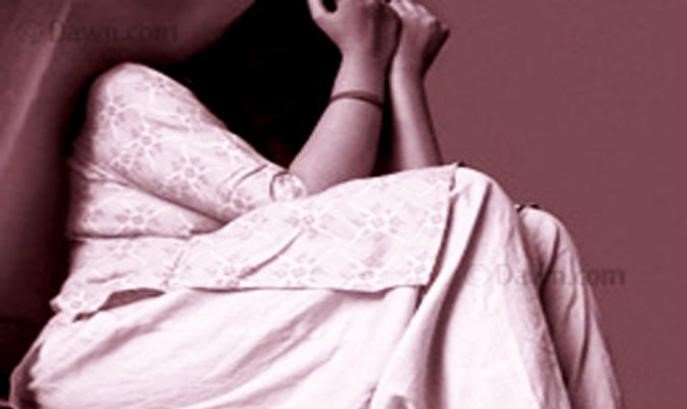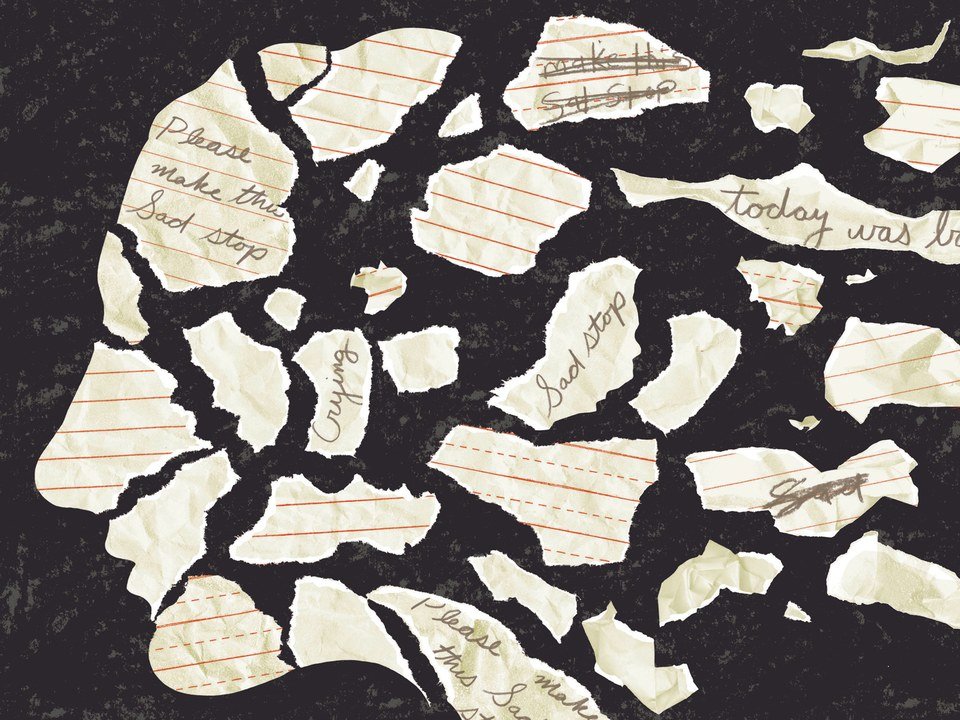When the horrors of life outway the terrors of death a man commits suicide — Albert Camus
Suicide cases are on the rise in Gilgit-Baltistan and Chitral. According to media reports in Pakistan 20 people, mostly female, aged between 15 and 35 years, take their lives every day. According to studies and survey reports, there has been an alarming uptick in the rate of suicide during the last five years, particularly during the corona pandemic. In the year 2020, over 1,730 people committed suicide. Of them, 1,086 were men and 649 were women as per the Human Rights Commission of Pakistan (HRCP) report.
Gilgit-Baltistan and Chitral in KP have the highest incidences of suicide. According to reports, 65 people took their lives in Chitral during the last five years. In Gilgit-Baltistan, District Ghizer has the highest number of suicides. Over a dozen cases were reported during the last few months in the district followed by Hunza District where half a dozen cases were reported during the last year. The alarming situation has prompted social conscious segments of society, particularly youth activists in Ghizer to hold Jirga on the 19th of June to discuss the root causes of the never-ending pandemic.
The mountain societies of GBC are lagging behind in terms of political, economic and social development and empowerment; state and society have failed in providing educational, economic and job opportunities to the youth. Over seven decades’ constitutional, political and economic limbo has created a sense of deprivation, alienation and frustration among the youth. Although these regions have witnessed tremendous progress in mass education during the last four decades, the outward migration and brain drain of youth due to lack of employment opportunities are affecting mental health leading to suicide cases.

Factors behind suicide cases
Most of the cases remain shrouded in mystery except for two cases — one from Ghizer and the other from Gojal in Hunza – in which the persons allegedly left behind suicide notes and voice notes stating the reason for taking their lives.
There are various factors contributing to suicide including social, psychological, cultural, and economic concerns. Sociologists and researchers have identified many reasons why individuals commit suicide. Some of the most common factors are alienation from society, emotional distress, insecurity about education, job, relationships, and health leading to a sense of helplessness. They feel that they are unable to bring about any positive change in their own lives and in the world around them. Young people feel alienated and isolated in societies like GBC, where their future is bleak, education, health, job and entertainment opportunities are scarce, particularly for young women, inequality and social injustices increasing, and the opportunities and power are controlled by a tiny affluent class at the top. Finding no hope, youth take extreme steps to relieve stress and cope with depression and anxiety.
Some motives that act as contributing factors in provoking students to end their lives are examination stress, fear of failure, verbal and physical abuse by parents, teachers, or peers, feelings of loneliness, hopelessness, and being worthless. Over expectations and rat race of competition lead to stress, depression, and other psychological illnesses among students.
Internet is also one of the factors contributing to this pandemic as it’s accessible to everyone either educated or uneducated; the flow of information and portrayal of advanced capitalist societies affects people, promoting individuality, confusion, and anxiety.
Domestic violence
Another factor compelling young women to take their lives in the closed community. The close ties and the emotional bonding are so strong they become toxic at times. In some cases, the trend of gossip compels the victim to either stay quiet, not raise her voice, or take her life. For instance, a suicide incident that happened a few years back in Gojal where a woman took her life just because she was accused by a group of women of having an affair with someone. She couldn’t sustain the allegation and took her life. Another young woman named Aliza took her life because of domestic violence.
Even in a so-called progressive society with claims of a 90% literacy rate, patriarchal structure and orthodox traditions are still deep-rooted. Women are still subjected to the worst kinds of oppression in the name of cultural norms and traditions which are becoming toxic with the passage of time causing depression. A good woman cannot share the ordeal and humiliation she has been through. Whether it is domestic violence, a toxic relationship, digital harassment or some mental illness, a woman is hushed up. Women don’t discuss their sufferings because of victim-blaming and stigma and to please society ultimately results in depression and suicide. Young girls are provided education but are forced to follow the parameters defined and set for ‘a good woman’. They are not given the liberty to make decisions about their job, profession and life partner. Finding no hope they take their own life.
The murder most foul
There are multiple cases that had been put under the carpet and not investigated to save ‘honour’ of the victim’s family. Police and media never take responsibility to probe such cases and dig out facts. There are also murder cases that are portrayed as suicide. For instance Adiba, a young married woman, from a far-flung valley Shimshal in Gojal Hunza district whose body was found on the bank of a river. Initially, her in-laws claimed that she had committed suicide but the girl’s family contested this and claimed that she had been murdered by her in-laws. The girl’s family reported the case to the police and demanded a proper investigation. The incident shook the whole region. Protests were organized by political and civil society organisations across GB and Pakistan to seek justice for her which forced the police to cancel the bail of the accused and re-investigate the case. Even after a lapse of one year the victim’s family has not been provided justice. The accused has been using delaying tactics because of loopholes in the prosecution and judicial system.
Suicide turned murder cases are common in the area. Such cases are not investigated just to protect the community’s honour. Community organisations which control the social life of the people are instrumental in discouraging investigation of such cases and putting them under the carpet in the name of reconciliation just to protect the ‘community honour’.
Remedies and way forward
It is the prime responsibility of the state, community organisations and society to take the issue holistically and address the socio-economic and psychological issues of the young people create a conducive environment for them to express their inner feelings and talent; include them in decision making and social activities.
Young people have to be clear in their goals in life, take independent decisions and set the correct course to achieve them; they must also be mentally prepared to meet new challenges build their own identity, maintain self-esteem, and take responsibilities in society. Families should be provided counselling not to pin high expectations, sometimes unrealistic on the youth. To cope with these challenges there must be significant supporting economic resources and appreciation from family and friends.
Keeping in view the rapid increase in suicide cases, there is a need for declaring a health emergency in GBC, and all the stakeholders, public, private, and civil society should join hands to address this issue. There is a need for launching door to door campaign to create awareness of mental health, particularly for the parents.
People are hesitant to talk about what they are going through because of the victim-blaming and stigma that’s attached to mental health. Interestingly some years back a private organisation had planned an awareness session on mental health but it couldn’t happen just because people said this is not an issue. A private school principal was convinced to start an awareness campaign on mental illness and suicide, but he refused to say why are we feeding the students with such a strong negative narrative which does not even exist. We are still in a state of denial and haven’t accepted it as an issue that is rapidly permeating society and needs to be addressed as a priority. Educational institutions should introduce such activities and events where these issues can be highlighted as a health and social issue which has nothing to do with honour.
Children at school should be encouraged to discuss their problems without judging them. Educational institutions, in particular, and other organizations in general, should hire a psychologist/psychiatrist/therapist who can identify such cases and help those in need. The community organisations dealing with cases like domestic violence etc. should be equipped with people who are sensitive to such issues and know about the laws, whereas current practice is otherwise.

Rozina Parveen is a doing M.Phil in Gender Studies from the University of Management Technology, Lahore. She is an activist and contributes essays on various subjects with a focus on women’s issues.

